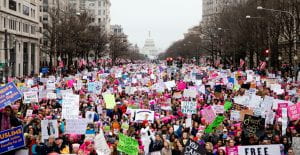In celebration of Veterans Day, Zief Law Librarian Tim Sanzi explores the holiday’s history, highlights relevant legal research resources, and shares some upcoming Bay Area events of interest.

History of Veterans Day
Veterans Day is a celebration to honor America’s veterans for their patriotism, love of country, and willingness to serve and sacrifice for the common good. – US Embassy and Consulate in Brazil.

As Veterans Day approaches, the Zief Law Library wishes to recognize and honor the veterans among our students, faculty, and staff at the University of San Francisco School of Law. This day also serves as a reminder of the sacrifices made by those who have served with dedication and valor.
Veterans Day is observed every year on November 11th and has a rich history that dates back to the end of World War I. Originally called Armistice Day, it commemorated the official end of the First World War, which occurred at 11 AM on November 11th, 1918 (the 11th hour of the 11th day of the 11th month), and the peace negotiations that followed. In 1954, the holiday was renamed “Veterans Day” after long-term petitioning of major United States veteran organizations. The first Veterans Day Presidential Proclamation was issued by President Dwight D. Eisenhower in 1954. President Eisenhower’s speech publicly declared the holiday’s name change to Veterans Day. His speech encouraged Americans to “remember the sacrifices of all those who fought so valiantly…to preserve our heritage of freedom, and… promot[e] an enduring peace.”
Since 1954, Veterans Day has been recognized annually by presidential proclamations. In his 2023 Veterans Day Proclamation, President Joseph Biden highlighted ongoing challenges that U.S. veterans face, such as access to housing, employment, mental health resources, and legal representation. President Biden ended his speech by detailing national efforts to help support veterans and encouraged Americans to recognize the holiday each November by participating in appropriate patriotic ceremonies or community activities. To learn more about the history and social significance of Veterans Day, visit the U.S. Department of Veteran Affairs website.
Commemorating Veterans Day: Research Resources
For those interested in learning more about Veterans Day and its significance, we recommend exploring the following resources:
- The Veterans History Project: The Veterans History Project at the Library of Congress collects, preserves and makes accessible the firsthand recollections of U.S. military veterans who served from World War I through more recent conflicts and peacekeeping missions, so that future generations may hear directly from veterans and better understand what they saw, did and felt during their service.

- Historical documents related to Veterans Day, including the Presidential Actions Archives, an archive of past Executive Orders, Memorandum, Proclamations, and more.
- Print and eBooks from the Zief Law Library Collection: To explore books from the Zief Law Library collection written by veteran authors and/or discussing military service experiences regarding the law, please explore the Zief catalog. Relevant topics include: military law; international law; international human rights law and advocacy; U.S. politics; health law, mental health, and medical benefits; disability law, compensations, and pensions; employment law; national security; and family law.
Bay Area Events
- San Francisco Veterans Day Parade, 2024: San Francisco’s free Veterans Day Parade will take place on Sunday, November 10th, from 11:00 AM- 12:00 PM in Fisherman’s Warf.
- San Jose’s 106th Annual Veterans Day Parade & Ceremony, 2024: San Jose’s Veteran’s Day Parade will take place on November 11, 2024, at 11:00 AM in Downtown, San Jose. Each year, since 1918, the United Veterans Council of Santa Clara County has produced a Veterans Day Parade with support from the City of San Jose, Santa Clara County, and contributions from many individuals and organizations. This parade is the largest Veterans Day Parade in Northern California.
-
Legion of Honor Centennial Weekend Celebration for Veterans Day: On November 11th, 2024, join The Legion of Honor for special Veterans Day programs as part of their Centennial Weekend Celebration. Events include live organ concerts on the museum’s rare Spreckels Organ, docent tours, and a special lecture, The Thinker’s Place, in conjunction with the newly opened exhibition Celebrating 100 Years at the Legion of Honor. Museum admission is free for all active duty military personnel and veterans during Veterans Day Weekend 2024.
For more information on Veterans Day events in your area, visit the U.S. Department of Veteran Affairs, VA News, or the City and County of San Francisco government website!
References
- “History of Veterans Day and Timeline,” U.S. Department of Veteran Affairs.
- Library of Congress Photography Archives.
- Presidential Actions Archives
- A Proclamation on Veterans Day,2023. Joseph R. Biden Jr. on
- Proclamation 3071—Veteran’s Day, 1954. Dwight D. Eisenhower on October 8th, 1954The American Presidency Project.
- “Veterans Day 2024: Bay Area Parades, Community Events and More Ways To Celebrate,” San Francisco Chronicle.
- The Veterans History Project, Library of Congress.
- “Veterans Day,” United States Embassy and Consulate in Brazil




